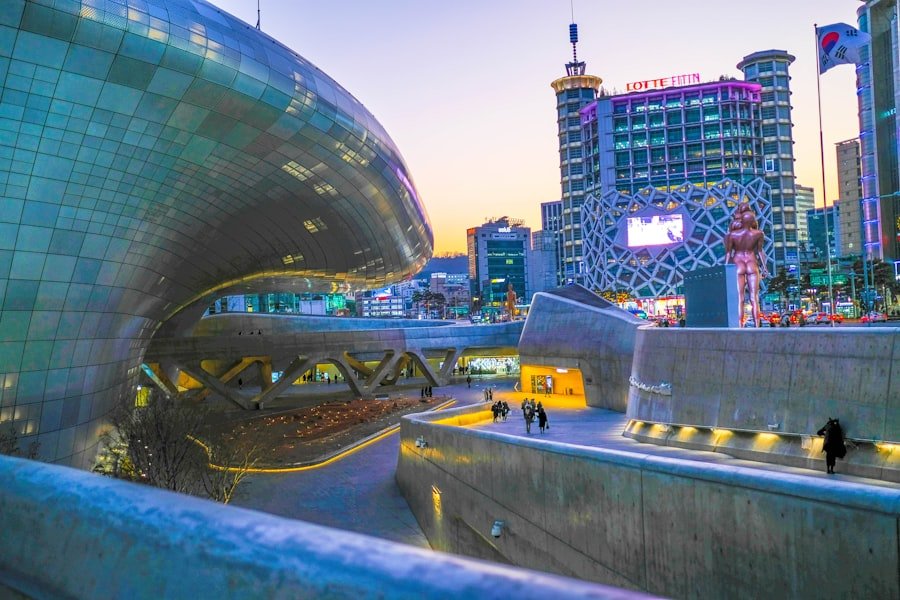

Asking for the Bill and Tipping Culture in Korea
Korean tipping culture is a fascinating blend of tradition and modernity, reflecting the country’s unique social dynamics. Historically, tipping was not a common practice in Korea, as the culture emphasised respect and gratitude over monetary rewards for service. In fact, many Koreans believe that good service should be a standard expectation rather than something that warrants additional compensation.
This perspective is deeply rooted in Confucian values, which prioritise harmony and respect in interpersonal relationships. However, as Korea has become more globalised and influenced by Western customs, the landscape of tipping has begun to shift. In contemporary Korea, tipping is not obligatory but is increasingly appreciated, especially in urban areas and among younger generations.
The rise of international tourism and the influx of foreign businesses have introduced new expectations regarding gratuities. While it is still uncommon to leave a tip in most situations, there are certain contexts where it is becoming more accepted. Understanding this nuanced tipping culture is essential for anyone visiting or living in Korea, as it can significantly impact social interactions and experiences in various settings. Learn Korean in Oslo! NLS Norwegian Language School is now offering classes. Register today.
Table of Contents
ToggleSummary
- Tipping is not a common practice in Korea, and it is often considered unnecessary or even rude in some situations.
- When asking for the bill in Korea, it is polite to use phrases like “계산서 주세요” (gyesanso juseyo) or “계산해 주세요” (gyesanhae juseyo).
- Service charge is often included in the bill at restaurants in Korea, so tipping on top of this is not expected.
- Splitting the bill is not a common practice in Korea, and it is more common for one person to pay for the entire group.
- Tipping at restaurants is not common in Korea, but it may be more expected in other settings such as hotels or for tour guides.
Asking for the Bill: Common Phrases and Etiquette
When dining out in Korea, knowing how to ask for the bill can enhance your experience and demonstrate respect for local customs. The phrase “계산서 주세요” (gyesanseo juseyo), which translates to “Please give me the bill,” is widely understood and will be appreciated by your server. It is customary to signal for the bill only after you have finished your meal, as it is considered impolite to rush the dining experience.
In many restaurants, especially those that cater to tourists, the staff may bring the bill automatically once they notice that you have finished eating. In addition to using the correct phrases, it is important to be mindful of your body language and tone when asking for the bill. A polite smile and a respectful demeanor can go a long way in ensuring a positive interaction with the staff.
In some establishments, particularly traditional ones, it may be customary to pay at the counter rather than at your table. Being aware of these nuances can help you navigate the dining experience more smoothly and show your appreciation for the service provided.
Differentiating Between Service Charge and Tipping

In Korea, it is crucial to understand the distinction between service charges and tipping, as this can often lead to confusion for newcomers. Many restaurants include a service charge in the final bill, which typically ranges from 10% to 15%. This charge is intended to cover the cost of service and is not considered a tip in the traditional sense.
Therefore, if you see a service charge included in your bill, there is no need to leave an additional tip unless you feel that the service was exceptional. However, in more casual dining settings or smaller establishments, you may find that no service charge is applied. In these cases, leaving a small tip—usually rounding up the total or leaving some loose change—can be a nice gesture to show appreciation for good service.
Understanding this difference can help you navigate your dining experiences more effectively and avoid any potential misunderstandings regarding gratuities.
The Practice of Splitting the Bill in Korea
Splitting the bill is a common practice among friends and colleagues in Korea, reflecting a sense of camaraderie and shared responsibility. When dining out in groups, it is typical for individuals to contribute equally to the total cost of the meal. This practice not only fosters a sense of equality but also alleviates any potential awkwardness surrounding who should pay for what.
In many cases, one person may take the initiative to cover the entire bill initially, with others reimbursing them later. It is worth noting that while splitting the bill is widely accepted among peers, it may not be as common in formal settings or business meals. In such situations, it is often expected that the host will cover the entire cost as a sign of hospitality and respect.
Understanding these social dynamics can help you navigate group dining situations more comfortably and ensure that you adhere to local customs.
Tipping practices can vary significantly between restaurants and other service settings in Korea. In restaurants, as previously mentioned, tipping is not mandatory but can be appreciated in certain circumstances. However, when it comes to other services such as taxis or hair salons, tipping is generally less common.
For instance, taxi drivers typically do not expect tips; rounding up the fare is usually sufficient if you wish to express gratitude. In contrast, some high-end establishments or international hotels may have different expectations regarding tipping. In these venues, leaving a small tip for exceptional service may be more customary.
It is essential to gauge the context and setting when considering whether to tip outside of restaurants, as this can vary widely based on location and type of service.
Cultural Considerations When Tipping in Korea
Cultural considerations play a significant role in shaping tipping practices in Korea. The concept of “jeong,” which refers to a deep emotional bond or connection between people, influences how Koreans perceive service and gratuity. Many Koreans believe that good service should stem from genuine care rather than financial incentives.
As such, tipping can sometimes be viewed as undermining this principle by placing monetary value on what should be an intrinsic aspect of hospitality. Moreover, there are regional variations in attitudes towards tipping within Korea itself. In larger cities like Seoul or Busan, where international influences are more pronounced, tipping may be more accepted than in rural areas where traditional values are more deeply ingrained.
Being aware of these cultural nuances can help you navigate social interactions more effectively and demonstrate respect for local customs.
How to Calculate the Tip in Korea

Calculating a tip in Korea can be straightforward once you understand the general expectations surrounding gratuities. If you decide to leave a tip at a restaurant where no service charge has been applied, rounding up your bill or leaving around 5% to 10% of the total amount is considered appropriate. For example, if your meal costs 30,000 KRW (Korean Won), leaving an additional 1,500 KRW to 3,000 KRW would be seen as a generous gesture.
In establishments where a service charge is included, it is generally unnecessary to leave an additional tip unless you feel that the service was exceptional. In such cases, you might consider leaving a small amount as a token of appreciation—perhaps rounding up to the nearest 1,000 KRW or leaving some loose change on the table. Understanding these guidelines can help you navigate tipping with confidence while respecting local customs.
The Role of Service in Determining Tipping Amounts
The quality of service plays a crucial role in determining whether or not to tip and how much to leave in Korea. While tipping is not obligatory, exceptional service can warrant additional recognition through gratuities. If you receive attentive and friendly service from your server—such as prompt refills on drinks or thoughtful recommendations—you may feel inclined to leave a tip as a way of expressing your gratitude.
Conversely, if you encounter subpar service or feel that your needs were not adequately met during your dining experience, it is perfectly acceptable not to leave a tip at all. This reflects your dissatisfaction with the service rather than an indictment of Korean hospitality as a whole. Ultimately, your decision regarding tipping should align with your personal experience and feelings about the service received.
Tipping practices can differ significantly between tourist-frequented areas and local establishments in Korea. In areas that cater primarily to international visitors—such as popular tourist districts or high-end hotels—staff may be more accustomed to receiving tips and may even expect them as part of their income. In these settings, leaving a gratuity for good service can enhance your experience and align with local expectations.
On the other hand, when dining at local establishments frequented by Koreans, tipping may be less common or even frowned upon. In these cases, simply expressing gratitude verbally or through polite gestures may suffice. Understanding these distinctions can help you navigate your dining experiences more effectively and ensure that you adhere to local customs while enjoying authentic Korean cuisine.
The Impact of Globalization on Tipping Norms in Korea
Globalisation has had a profound impact on tipping norms in Korea, leading to a gradual shift in attitudes towards gratuities. As international tourism has increased and foreign businesses have established themselves within the country, many Koreans have been exposed to different cultural practices surrounding tipping. This exposure has led to a growing acceptance of tipping as a way to acknowledge good service.
However, this shift has not come without its challenges. Some Koreans express concern that adopting Western-style tipping practices may undermine traditional values surrounding hospitality and respect for service workers. As such, there remains a delicate balance between embracing globalisation while preserving cultural identity—a dynamic that continues to shape the evolving landscape of tipping in Korea.
Navigating Tipping Expectations for Expats in Korea
For expatriates living in Korea, navigating tipping expectations can be particularly challenging due to differing cultural norms and practices. It is essential for expats to familiarise themselves with local customs surrounding gratuities to avoid any potential faux pas or misunderstandings. Engaging with local friends or colleagues can provide valuable insights into appropriate tipping practices based on specific contexts.
Additionally, expats should remain open-minded and adaptable when it comes to navigating these cultural differences. While it may take time to adjust to new social norms surrounding tipping, embracing these experiences can lead to richer interactions with locals and enhance one’s overall experience living in Korea. In conclusion, understanding Korean tipping culture requires an appreciation for its historical context and evolving dynamics influenced by globalisation and cultural exchange.
By familiarising oneself with common phrases for asking for bills, differentiating between service charges and tips, and recognising regional variations in attitudes towards gratuity, individuals can navigate their dining experiences with confidence and respect for local customs. For those interested in delving deeper into Korean culture—whether through language or social practices—the NLS Norwegian Language School in Oslo offers comprehensive Korean courses designed for learners at all levels. These courses provide an excellent opportunity not only to learn the language but also to gain insights into cultural nuances such as tipping etiquette and social interactions within Korea.
Embracing this educational journey can enrich one’s understanding of Korean society while fostering meaningful connections with its people.
If you want to learn Norwegian, you can register for classes here. We look forward to hearing from you and helping you become fluent in Norwegian.





